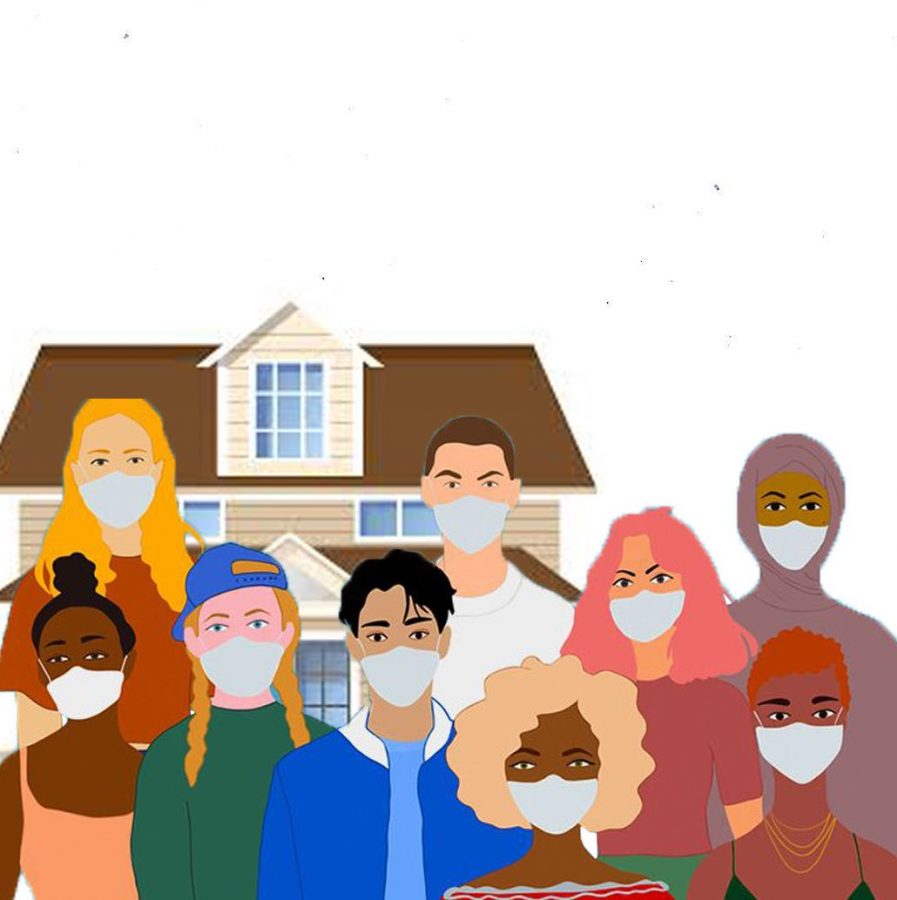OPINION: Greek members need to follow their leaders
The WSU Greek community needs to drastically change their behavior for pandemic safety, well-being of the Palouse area
While Greek leaders have been working to ensure COVID-19 safety, it’s up to their constituents to follow through and keep the Palouse safe.
September 2, 2020
It is no secret that Greek life nationally carries a stigma of recklessness. WSU’s Greek community, infamous for its party culture, is no different.
During this pandemic, the spotlight has cast on this group of students as the most likely catalyst for new COVID-19 cases on the Palouse. Though many believe it is inevitable, I disagree. Though many believe our Greek students are inconsiderate of the rest of the Pullman population, I disagree.
The actions of Greek leadership in preparation for the fall semester show the foresight and empathy of this community. In a pandemic where every action is a shot in the dark, these leaders took early preventative measures to prepare to hold their members accountable to health and safety.
An article by Lisa Lockerd Maragakis highlighted the expected effects of reopening areas of the U.S. Maragakis stated that “people are understandably eager to be able to go out and resume some of their regular activities”, but because we have yet to develop a vaccine, “re-openings are intended to take place safely while maintaining social distancing, and masking and hand-washing.”
The Panhellenic, Interfraternity and Multicultural Greek Councils expected a similar need when preparing for the fall term. Rather than waiting for cases to spike at the beginning of the school year, these community leaders came together to create an outline called COVID-19 Organization Response Expectations.
This outline for pandemic-specific social suspension focuses on the expectation of Greek life members to follow the laws imposed by Governor Jay Inslee and Pullman officials.
“This was more of a preventative suspension rather than a reactionary one,” Corissa Cruzen, Panhellenic vice president of recruitment, said.
Not only did they forbid social events, they also encouraged members of WSU Greek chapters to work openly with contact tracers in the area. By providing contact tracing amnesty, students are encouraged to be forthcoming about their whereabouts at any time in which they came in contact with someone that might be infected with COVID-19.
Cruzen also said Panhellenic had worked exhaustively to pioneer a fully-online recruitment during the week of Aug. 16-23.
Working alongside the National Panhellenic Conference, Cruzen and Miranda Gooler, Panhellenic vice president of recruitment counselors, worked to prioritize the safety of the entire Pullman community while also allowing potential new members to see our chapters’ values.
When tradition and COVID-19 came to a head, the leaders of the Greek community chose to prioritize our well-being. Even at the expense of many late nights, the stress of last-minute changes and unexpected technical difficulties, this was the right decision. It very well could have stopped many unnecessary contractions of the virus in Pullman.
Rather than the “frills” of door chants and matching outfits, Cruzen said there were many different ways she had seen the Panhellenic community come together in unprecedented circumstances.
“The things that don’t really matter when it comes down to joining a women’s organization … like who can chant louder, doesn’t really matter compared to who you want to spend the rest of your life being a member for,” Cruzen said.
Cruzen said she wants to see chapters focus on individuality and supporting members to be their authentic selves.
Within the chapters themselves, Cruzen said there was a change in the atmosphere during recruitment week. Rather than pure competition, she said there was support in the face of last-minute technical difficulties. The minds of the Greek community were no longer on personal success, but rather on supporting each other during a time where every day was a shot in the dark.
This is an attitude change that needs to be considered as we continue our semester here in Pullman. The Greek community needs to lead the way in prioritizing health and safety. Chapters need to be outwardly focused — to consider the health of our neighbors in the historic district and the families we see at Dissmores.
“The most ‘Cougs help Cougs’ thing that you can do is social distance, wear a mask, not have social gatherings of more than 10 people and stay safe,” Farrin Johnson, panhellenic’s vice president of public relations, said.
If there is any tradition we should focus on upholding during this time, it’s the ‘Cougs help Cougs’ age-old Wazzu motto. Panhellenic and the other Greek councils have worked tirelessly to make a proactive, positive change in our community. It is up to the rest of us to decide whether or not we comply for the sake of our own health.
COVID-19 and Greek life can coexist safely, but not as Greek life has existed up to now. As the rest of us have adapted since this pandemic began, so must Greek organizations around the country.









